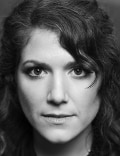Receiving a medical school education during a pandemic has its share of complications, including modified clinical rotations, reduced hands-on experiences, routine COVID checks, limited patient interaction, and canceled procedures.
Students in med school are also training in a healthcare environment strained by staffing shortages and increased safety protocols. Still, benefits emerged, including increased opportunities to volunteer their new medical skills while helping overtaxed medical teams keep up with the rising demand for care.
Medscape Medical News asked a handful of med students who regularly blog for us to share their experiences training for a medical career during a global pandemic.
Emily Kahoud, third-year medical student, Rutgers New Jersey Medical School
When I decided that I wanted to go to medical school to become a physician, I knew the path I was choosing would be fraught with challenges. Many had warned me of medicine's state of affairs. How it has changed from when they had first become physicians. How they would choose a different career if they could. Or how they recommended against medicine as a career for their children.

Emily Kahoud
I applied to medical school despite their warnings, undeterred by the concept of a jagged journey, for much of my untraditional path toward medicine had been characterized by tortuous unyielding and rocky scrambles. I had learned to embrace the familiarity of the rocky terrain; anything else would be uninspiring.
Then SARS-CoV-2 graced the medical landscape with its deadly and destructive presence. Many of those who wanted out of the profession prior to COVID made a run for it, and those left behind found themselves in a much more dire a situation.
Medical students initially may have been enamored by the adrenaline rush of learning and serving during such a historically consequential moment. But then the isolation wore on and unexpectedly became embedded in our daily lives, our transmogrified existence.
The pandemic has likely incinerated any med student's idealism regarding our chosen profession. Yet if you entered the profession without an abundance of unrealistic expectations, perhaps the pandemic's onslaught has propelled you further along in your determination.
Those of us who have fought hard to arrive here, who've recruited our inner resilience on many occasions prior to COVID, may not blink at the chaos unleashed by a pandemic having no relief in sight. Meanwhile, we can't help but wonder how our lens and perspective will inevitably be altered once we bear the heavy burdens of life as a physician during the COVID era.
Tyler LeComer, second-year medical student, Harvard Medical School
As a medical student who started my training in the midst of the pandemic, packed hospitals and stressed doctors are all that I have known — and had come to be my understanding of what was normal. It was not until I began my clinical year and spent day in and day out in the hospital that I gained an appreciation for just how crushing the pandemic has been and continues to be.

Tyler LeComer
Today, I am nearly a month through my internal medicine rotation and have watched the Omicron variant rip through the workforce of residents, PAs [physician assistants], and NPs [nurse practitioners]. Some residents are out of work to quarantine, leaving the remaining residents with distorted schedules and additional workload on top of their already busy days. They are often expected to return to work even before they feel back to their full selves.
It has been genuinely scary to see how the dire conditions of the pandemic have affected life in the hospital. It feels almost selfish to think about how the pandemic has affected my training as a medical student when patients and residents are bearing the brunt of it, but the stress on the hospital makes its way to us.
With high hospital capacities and residents being stretched so thin, direct teaching is often not possible. I am incredibly grateful for the time that interns and residents are able to put aside to teach because I know it comes between administrative tasks and seeing full patient lists.
My class has never seen hospitals in a "normal" state and as we decide what comes next for us after medical school, the image we have of specialties may be heavily distorted from what the normal day-to-day may actually be. We are left to start putting together this incredibly important decision [about our future] in a world that could be vastly different than the world may be in 5 years. The pandemic has introduced a state of instability and strain to medical training that hits at all levels. We're all still learning and improving as healthcare providers, but the impacts on education and our well-being are very real.
Abigail Schirmer, fourth-year medical student, Florida State University College of Medicine
With the pandemic and my third year of medical school ramping up around the same time in the spring of 2020, COVID-19 has undoubtedly played a significant role in my clinical training experience. I can't say that I have ever examined or spoken with a patient without a mask on. Nor can I say that COVID-19 has not been a piece of my differential during rotations on a day-to-day basis. However, there are a few things that truly stand out in the impact that COVID, and its primary surges, have had on my clinical experiences.

Abigail Schirmer
For someone like myself who is interested in pursuing a career in surgery, a huge impact of COVID has been the cancellation of elective surgical cases. Depending on the state and institution, many elective surgical cases have been canceled to distribute adequate staffing or hospital beds for inpatients rather than outpatient or elective surgeries.
There are several times during both third-year and fourth-year-clerkships that I can recall cases being canceled due to an uptick in COVID-19 patients. For example, during my fourth-year externship, the Delta variant had become so rampant in the region in which I was rotating, that we had days full of cases canceled. While this made the wonderful opportunity to have additional time for bedside teaching, intraoperative learning decreased significantly due to the decline in case volume.
The impact that the pandemic has made on the practice and teaching of current day clinical medicine truly has added complexity to an already strenuous 4 years of clinical education in medical school.
I personally hope that I will see a day in medicine where a COVID swab is not a routine part of a patient's workup. Until then, hopefully vaccination and following masking recommendations will reduce exposure and spread of COVID-19.
Niala Manghat, Windsor University School of Medicine graduate, involved in clinical research at San Jose Medical Center
Medical students have seen tremendous challenges during the COVID-19 pandemic, from being pulled out of clinical rotations for weeks during the start of the pandemic to being among the last to receive vaccinations while still being in contact with patients. Fortunately, though, amid all the difficulties, we were also given opportunities.

Niala Manghat
Since hospitals usually have a limited number of spots for volunteer students, not all students are availed of the hands-on experience that they crave. During the pandemic, this changed. Due to a mixture of things such as an increased load on the hospital and staffing shortages, students were called in to help with all sorts of tasks that would normally be quite tricky to land.
The drawback to this was that our patient interaction seems a bit more limited, replaced with more administrative or textbook work. This may pose the worst threat to third- and fourth-year medical students, as they would likely have seen a much more limited variety of clinical cases [during COVID].
Seeing different types of patients is what essentially leads to a student being well versed in the whole spectrum of a specialty, naturally, so it is concerning that we lost this opportunity during the pandemic. The learning curve from medical school to residency is already such a huge leap that it becomes nerve-wracking to know that the distance between the two may have grown more sizable.
Yusuf Mehkri, second-year medical student, University of Florida College of Medicine
Being a medical student during the COVID-19 pandemic has been quite the double-edged sword. On one end, the pandemic has shown future health professionals like me why our profession is so important for the functioning and success of society. Without selfless health professionals who continued to walk into the face of danger of death during the early parts of the pandemic, we can only imagine the chaos that would come about.

Yusuf Mehkri
On the other hand, COVID really broke apart the medical education system from the ground up. For me personally, the biggest impact of COVID has been this exact disruption to medical education. With all lectures and most activities held on Zoom, my classmates and I lost a ton of face-to-face time that is crucial for developing strong emotional and social skills. In addition, the first portion of our anatomy practicum was also held on Zoom and took away from the hands-on experience that anatomy labs are known to bring.
One of the biggest changes was not being able to freely shadow. The first 2 years at schools with a traditional curriculum like mine are incredibly important, not only for learning foundational knowledge and skills, but also for exploring different fields and seeing what does and doesn't interest us.
This is even more important, considering that we then have the third year to rotate and finally determine which field we want to apply to for residency near the start of our fourth year. For most preclinical students, COVID took away the chance to freely connect with physicians and to request spending the day shadowing to explore their field. Although it's easy to understand why sacrifices had to be made, the effect that COVID had on the medical education system has had major repercussions and will continue to for the next few years.
For more news, follow Medscape on Facebook, Twitter, Instagram, YouTube, and LinkedIn
Credits:
Lead Image: Yusuf Mehkri
Image 1: Emily Kahoud
Image 2: Tyler LeComer
Image 3: Abigail Schirmer
Image 4: Niala Manghat
Image 5: Yusuf Mehkri
Medscape Medical News © 2022
Send news tips to news@medscape.net.
Cite this: Students Ponder Medical Future Having Trained During COVID - Medscape - Jan 27, 2022.










Comments